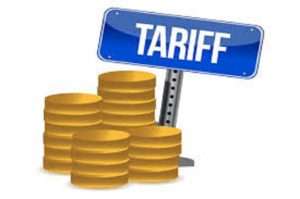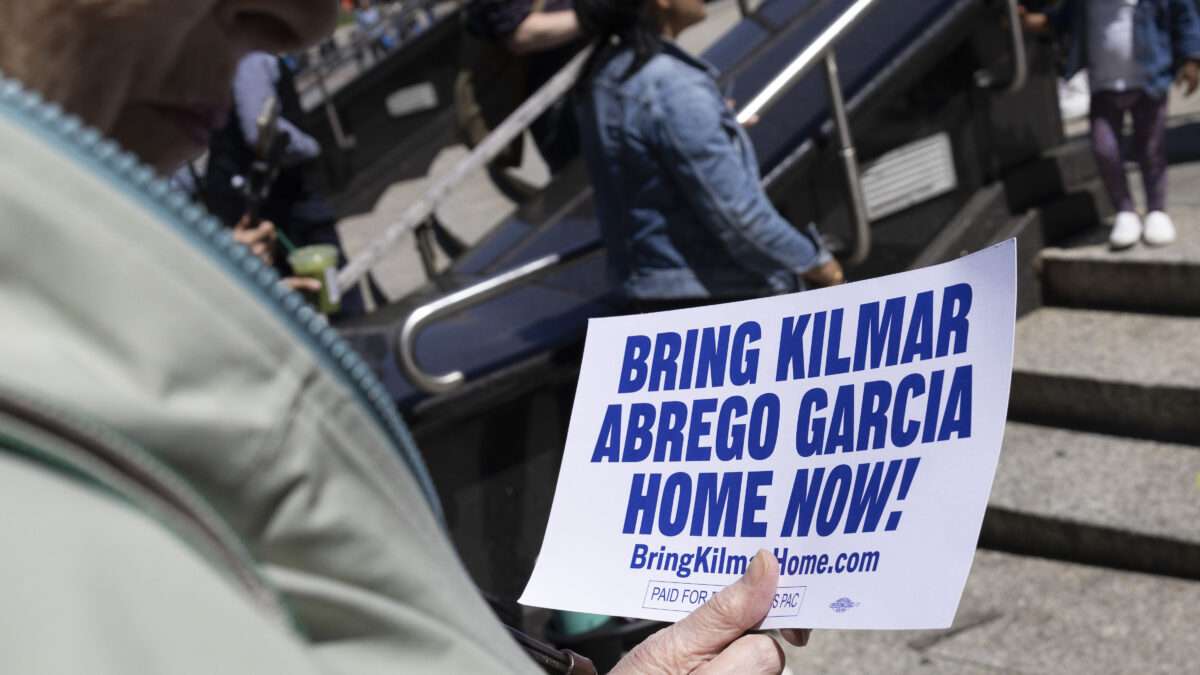 (NA)
(NA) Earlier today, a three-judge panel of the US Court of International Trade heard oral arguments in the case challenging Donald Trump's massive "Liberation Day" tariffs brought by the Liberty Justice Center and myself on behalf five US businesses harmed by the tariffs. The Administration claims that the President's imposition of 10% or higher tariffs on virtually every nation in the world is authorized by the International Emergency Economic Powers Act of 1977 even though IEEPA doesn't mention tariffs at all, and its invocation requires the existence of a "national emergency" and an "unusual and extraordinary threat" to the United States.
Audio of the oral argument is available at the Court of International Trade website. It's generally difficult to predict the the outcome of a case based on oral argument. Judges will sometimes rule on issues that get little or no play in argument. Still, I was encouraged by the fact that all three judges seemed skeptical of the government's claim that IEEPA gives the president virtually unlimited power to impose tariffs. And, as we have argued from the beginning, the government's position amounts to saying that the president can impose tariffs of any amount, on any nation, at any time, for as long as he wants.
The issue of limits came up again and again during the argument. Judge Restani noted to the government's lawyer that "[t]here's no limit, is what you're saying — there's no limit." She also suggested that the government's position would enable the president to declare that a shortage of peanut butter qualifies as a "national emergency" and an "unusual and extraordinary threat" justifying tariffs. She did not strike me as happy with that state of affairs.
Judge Katzmann suggested that the government's position amounted to "deleting" the role of the judiciary from reviewing the legality of tariffs. Judge Reif - whom some observers believed was the judge least likely to support our case - seemed troubled by the fact that the government's ultra-broad interpretation of IEEPA would allow the president to bypass a number of other statutes that authorize the executive to impose tariffs in narrower circumstances, but only after following mandated procedural rules. If IEEPA grants the kind of sweeping authority Trump claims, there would be little point to these other laws.
In fairness, the judges also had some tough questions for LJC Senior Counsel Jeffrey Schwab, who argued the case for us. In particular, they focused on the issue of whether we have a standard for judging what qualifies as an "emergency" or an "unusual and extraordinary threat."
I think, as Jeff noted in oral argument, the longstanding and entirely normal trade deficits that the administration cites in this case, are so obviously neither an emergency nor unusual and extraordinary that the court could simply say they don't meet any plausible standards. As Jeff put it, an umpire doesn't have to precisely define the strike zone to call a ball on a pitch that's so far from the plate that it goes behind the batter and can be considered a wild pitch.
But if the court wants to articulate a standard, they should, as Jeff later indicated, conclude that, as the House of Representatives report leading to IEEPA put it, "emergencies are by their nature rare and brief, and are not to be equated with normal ongoing problems." Trade deficits are pretty obviously neither rare nor brief, and they are clearly "normal ongoing problems." Similarly, as the government's counsel suggested, an "unusual and extraordinary threat" must be something that is "not usual." Trade deficits are in act entirely "usual."
I was also struck by the fact that none of the judges asked about remedies or the scope o the injunction that should be imposed against the tariffs if we prevail, including whether the injunction should be nationwide or limited to our clients.
Overall, I am guardedly optimistic, though it's always possible that the judges' statements in oral argument don't fully indicate their thinking. We tentatively expect a ruling from the court within the next few weeks.
I have gone over the legal issues in the case in greater detail in my Lawfare article, "The Constitutional Case Against Trump's Trade War." See also my post on why these sweeping tariffs threaten the rule of law.
There are also several other cases challenging the tariffs, including one filed by twelve states led by Oregon, which will be heard by the same CIT panel on May 21. In addition, there is the aptly named Princess Awesome case filed by the Pacific Legal Foundation on behalf of ten businesses (also before the CIT), a case filed by the state of California in federal district court, one by the New Civil Liberties Alliance (challenging tariffs against China on behalf of an importer, filed in district court), and one brought by members of the Blackfeet Nation Native American tribe (challenging tariffs against Canada, filed in district court; that court ruled the case should be transferred to CIT, and the plaintiffs have appealed that ruling).
The post Thoughts on Today's Oral Argument in Our Case Against Trump's IEEPA Tariffs appeared first on Reason.com.













 Bengali (Bangladesh) ·
Bengali (Bangladesh) ·  English (United States) ·
English (United States) ·